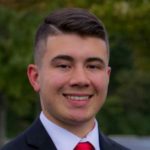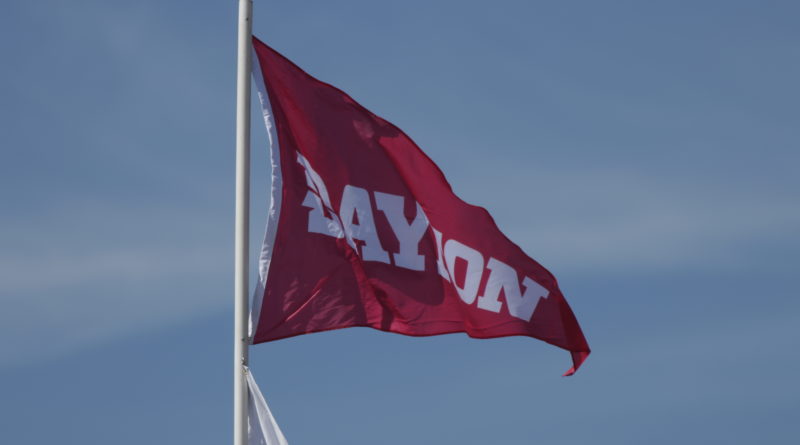Fall coaches face overwhelming uncertainty in unprecedented fall
Uncertainty is resounding for the UD athletic program, but positives can be found as fall coaches lead their teams through these trying times. Photo courtesy of Flyer News.

Peter Burtnett
Sports Editor
As the University of Dayton athletic program and the Atlantic 10 conference continue to deal with the repercussions of the COVID-19 pandemic, the coaches of fall sports face unprecedented circumstances and a resounding sense of uncertainty.
Although the A10 has left a window of opportunity to reevaluate the situation in mid-September, the outlook still looks bleak as the situation has yet to noticeably improve.
“Obviously, (the) unknown has been one of the biggest hurdles that we’ve had,” Director of Track & Field and Cross Country Jason Ordway said. “And you keep, kind of, pushing the goal line and, like, the carrot at the end of the stick further down the way. It’s just been really hard to plan for certain things to come when you keep pushing back the time that it’s gonna happen.”
Although cross country could be considered the most “normal” of fall sports according to Ordway because of the ability to practice separately, the team still faces challenges with uncertainty and keeping morale high.
“It’s been hard to balance the morale side of things,” Ordway continued. “I think that’s been the biggest challenge that we’ve had, of how do you stay positive, how do you stay focused, what can we do to change things up just to keep the outlook quite not as bleak. Athletics is a real grounding force… when you add a lot of uncertainty to the mix, it can be hard for (the athletes).”
A similar sentiment was shared by men’s soccer head coach Dennis Currier, who highlighted uncertainty and “searching for answers” as the biggest challenge he has faced throughout this pandemic.
“Searching for answers, and then not even knowing if that answer is right or not,” Currier said. “There’s been so much uncertainty from the start, and I think you’re just always trying to communicate to your team, but it’s like you don’t have the answers to communicate what’s gonna happen next… not knowing where the future is, what the finish line is for these guys.”
Currier also questioned the uncertainty over knowing what guidelines to follow and what the best guidelines are to ultimately keep his players safe.
“It just feels like since we left in March, it’s just been really difficult to find out and navigate through,” Currier said.
Through all of the questions and challenges that have arisen because of the cancellation of all games during the fall season, positives have been found by the coaches. Although Currier said the “positives will come later,” and the players are going through a big disruption to their lives, women’s soccer coach Eric Golz has found light in these dark times for college sports.
“(Our interactions) seem more genuine, more authentic, because there’s nothing tied to it in the sense of games or playing time or expectations,” Golz said. “I think it’s an opportunity to really talk to, try and get to know our players better, but also I think our players have done a really good job of reaching out to and interacting with each other just to keep tabs on each other and how they’re doing… the relationship side has certainly benefited.”
Finding positives through these unique circumstances has allowed coaches to cultivate relationships between themselves and their players, and has revealed a strong foundation for UD athletics, highlighted by football head coach Rick Chamberlin.
“We’ll be okay,” Chamberlin said. “This football program will be just fine, it has too strong of a foundation and too many good people both on the team and administrative support staff. We’re going to have something positive out of this fall.”
Chamberlin, along with the other fall coaches, credited the leadership of Athletic Director Neil Sullivan as being an important part of keeping the foundation strong moving forward as the fall teams grapple with having all of their games cancelled (or at least moved to the spring).
“Neil Sullivan, our athletic director, did an outstanding job in his communication with our players over the last couple months,” Chamberlin said. “We’ve had meetings with him as a total team, as our leadership council… of nine players, in all of them, he’s updated (the players) on how things were progressing, but he was always realistic with them. He was telling them exactly how it was, how things were standing, how things looked nationally and for the conference and so forth, so when the decision (to cancel the season) finally became official, I don’t think it was a great shock to the players.”
After the initial disappointment of finding out their season had been cancelled, coaches are now tasked with keeping their team focused as they practice without any games to look forward to.
While Ordway said he holds the mindset that teams that are the most focused will be best prepared, Currier said his team must face and “win the day,” with the finish line now likely being in the spring.
Chamberlin said the team will likely play more inter-squad scrimmages to keep the competition going, and Golz said his team’s ambitions are to “continue to progress” through this unprecedented season.
Finally, as the country as a whole continues to experience upheaval from 400 years of systematic racism and social injustice, Golz said empathy is most important.
“It’s a complex issue that, if nothing else, has increased awareness that people’s lives are different,” Golz said. “And depending on their own personal experience, that can become their reality, but also empathy for understanding what somebody else’s experience may be, or may have been, and how that shapes them and who they are.
“So, we’re having conversations as a team, but I think that there’s also been people who have gone out to participate in protests …(and) on social media. I think it’s a really good time to listen and to learn and to have some different conversations and read… watch some different things, to just gain perspective that maybe we had not considered previously…
“In terms of steps we might take as a program, I think that those are all conversations that are ongoing, with our program, within our university. I think it’s a fact that we have a role in it. And it’s a role that we need to consider and take seriously and not take the back seat on.”
As the fight for social justice and against racism continues to be brought to the forefront in sports, Golz said he sees this time as an opportunity to build bridges.
“On the whole, I think sport has a big role in healing and helping to create some bridges,” Golz said. “To help heal some of the issues that we’re facing right now.”
Although games are missing right now, fall sports coaches still see this unprecedented season as an opportunity to grow and mature both on and off the field.
For more sports news like Flyer News on Facebook and follow us on Twitter (@FlyerNews & @FlyerNewsSports) and Instagram (@flyernews)

